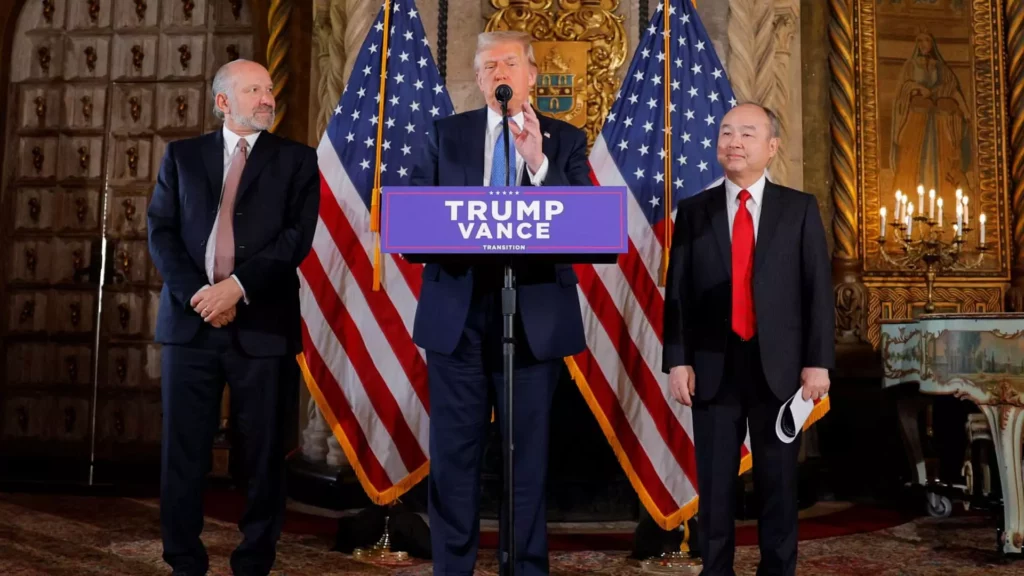In a move that underscores the intertwining of business interests and governmental relations, Masayoshi Son, the CEO of SoftBank, unveiled a staggering $100 billion investment plan for the United States. This announcement took place during his visit to Mar-a-Lago, the Florida residence of then-President-elect Donald Trump. This pivotal moment harkens back to a previous partnership in 2016 when both figures foresaw significant economic opportunities in the U.S. market. While the details of this latest investment are promising, they signify more than just dollar allocations; they reflect a deeper connection between technology innovation and political landscapes.
Son’s commitment to create a minimum of 100,000 jobs is a statement of intent, especially in the realms of artificial intelligence and technological infrastructure. Following Trump’s election, the sentiments expressed by both leaders echo a shared optimism about the U.S. economy. “My confidence level in the economy of the United States has tremendously increased with his victory,” Son articulated, indicating a strong belief in the nation’s potential for growth under Trump’s administration. This mentorship-like dynamic raises questions about whether such investments are driven primarily by market opportunities or if they serve as strategic moves reflecting political favoritism.
Reflecting on SoftBank’s prior engagement in 2016, the firm’s earlier $50 billion pledge to create 50,000 jobs laid the groundwork for the current ambition. The repetition of this pattern suggests a long-term confidence in the U.S. market, while also highlighting potential risks of over-reliance on political figures to drive investment decisions. Trump’s remarks, stating this investment as a “monumental demonstration of confidence,” reinforce the narrative that business leaders and politicians are increasingly coalescing around the theme of American resilience and innovation.
SoftBank’s vast financial capabilities allow it to draw from a multitude of sources to realize this ambitious investment. The funding may come from various avenues controlled by the company, such as the Vision Fund and their significant stake in chipmaker Arm Holdings. The strategic combination of new capital influx and previously announced investments — like the recent $1.5 billion in OpenAI, the entity behind the AI sensation ChatGPT — indicates a comprehensive approach to funding. It also raises questions about how such resources will specifically target sectors poised for exponential growth.
As the tech landscape evolves rapidly, its integration with economic policy becomes pivotal in shaping the future. The soft power wielded by figures like Son could redefine how emerging technologies like AI are developed and nurtured in the U.S. This investment doesn’t merely constitute a fiscal maneuver; it is a bold assertion of the belief that the U.S. will remain a key player in driving global technological advancement. Ultimately, as SoftBank’s plans unfurl, analysts and observers alike will keenly monitor both the economic outcomes and the ideological implications of this monumental bet on American innovation.

